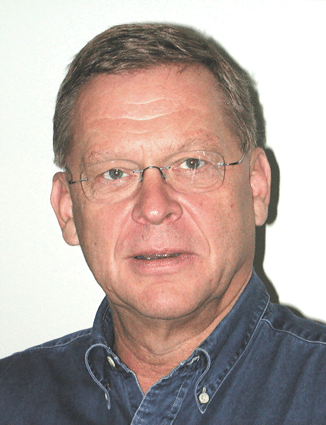“I would be a bit sad if JPND only focused on projects with 3-5 countries involved. In these projects the researchers continue in the same way as they did before, and they do not experience these cultural influences from different specialists and you would not get this circular effect that can spread around to all the countries. So I say to JPND that you should support projects that involve as many of the participating countries as possible.”
What impact do you think JPND is having?
At the start I was not so sure about JPND because I felt it was more of a top-down idea where it is decided more-or-less from the Management Board what areas should be focused on, with the input of the Scientific Advisory Board. I was afraid that the research councils and funding organisations in each country would reduce their interest. Now, I can only give the example from my own country, Sweden, but I can say that they have been extremely positive to JPND, and they have put in extra funds, in addition to the support that already existed. This extra addition of funding is due to JPND, and I am sure that this is the case in most other countries. Globally, I think there is growing interest worldwide in JPND – we can see the collaborations starting with Canada, with interest also now coming from Asia and America.
What do you think are the most pressing issue in this area of research?
This is a field that is really evolving. From a societal perspective, disorders like Alzheimer’s, Parkinson’s and Vascular dementia are very common and are a high cost to society. That means in the future, with aging populations, greater efforts are required to stimulate research, and to simulate clinical work with these patients. Due to the increasing demand, and increasing age of populations, if we don’t do anything in research, there will be a collapse of our healthcare systems. So we need to focus not only on diagnostic processes, but we need to also develop new pharmacological treatment strategies for these patients.
What is the general feeling you get from researchers in this field?
There are different views from different categories of people. If you look from the GP/Doctor perspective, I can see that GPs are rather nihilistic. They have not yet seen any great success from the new drugs that are really the first-generation of pharmacological treatments in this area, so they may be a bit negative. However, from a society perspective we are forming teams of carers for community care. With more research these teams are really increasing their knowledge, and that gives back very positive feelings. From the specialist clinicians I think it is noticed that Nobel prizes are regularly given out in this field (e.g. prion-like properties, signalling systems in the brain, MRI and PET, new microscopes to study the interaction of neurons + chemical substances in the brain). It is a fascinating research area, and an area that is more and more recognised.
What would your advice be to younger researchers?
For young people who want to come into research, the brain is fascinating. The explosion in molecular biology, cell biology, genetic findings combined with the technological advancements seen now with MRI, functional imaging, positron emission tomography are very exciting for brain research. So even if we are not solving the ultimate question in the short term, we will see great progress through these new technologies coming into this field. I really want to combine fundamental knowledge about the diseases with technology and biochemical research, and to also give young people future possibilities not only for a clinical or academic career, but also to work with industry in the future. It is not only important for them but also for Europe. Europe has many strengths – we have good clinical work, good pre-clinical work, but have lost part of the industry. If we could really integrate these three, we would play a stronger part in developing new drugs and developing ideas within Europe.
Click here to read Bengt Winblad’s biography.

